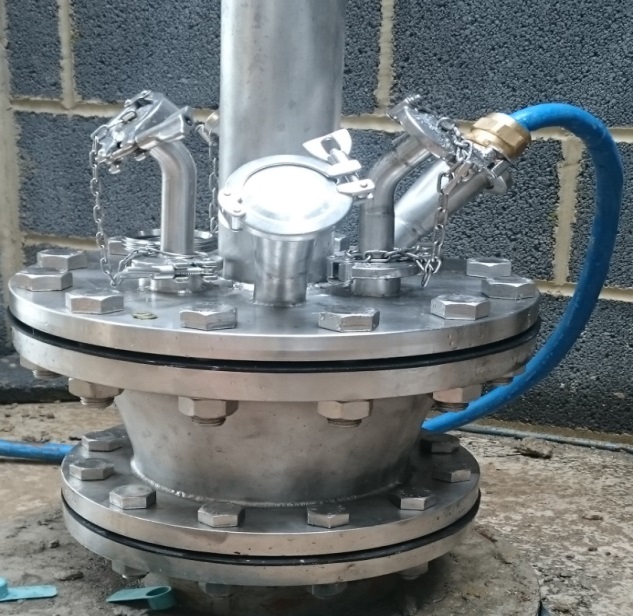
Borehole development definition:
“To remove all drilling debris, additives and natural sediments from a borehole and connected water-bearing strata fractures and fissures to maximise the inward flow and optimum yield of clean groundwater”.
Water supply borehole development is an often underappreciated aspect of drilling contracts and, in some cases, it is treated as an afterthought. But the value of effective borehole development can be substantial and it always warrants its own clear time allocation as part of a project.
If the rock being penetrated during drilling is a clean, highly transmissive sandstone and the flushing medium is compressed air, borehole development typically takes between 4 and 8 hours. In fact, as little as one hour may be sufficient in some instances.
However, where the penetrated rock contains mudstones, marls or clays, and liquid flushes that have been used to control the stabilisation during construction, an increased period of development is sometimes required.
In some instances, the hydrostatic head of drilling fluid can force drill cuttings sideways. This blocks fractures and fissures connected to the borehole wall, stifling the inflow of groundwater and dramatically impacting the boreholes performance. These fractures and fissures may already be blocked by natural sedimentation over the ages.
While blockages and incrustations can present a challenge to borehole owners, a good water well driller can utilise various techniques to develop the borehole to its full potential and restore full function. This can take considerable extra time depending on the specifics of the circumstances but it is always beneficial to perform remedial work quickly to optimise performance and prevent further deterioration.
At Drilcorp we understand that time is money for our clients and that any downtime can be anything from an inconvenience to a business-halting disaster. That is why our experienced engineering team are highly responsive and work with clients to ensure that borehole development projects are completed quickly and efficiently from initial engagement to the time we exit a site.
It can be tempting for clients to cut borehole development short in order to get things back up and running more quickly. While reducing downtime may feel like the best solution, it is important to understand that there are consequences to being too hasty.
An insufficiently developed borehole will not give maximum available yield. As we have seen on many occasions, this results in higher pumping costs and the production of turbid, discoloured groundwater. Any residual drilling debris or sediment will eventually make its way into the borehole and pumping equipment, which can block annular filter sand and screens. From here the submersible pump and treatment plant can fail.
As in many aspects of business, patience can be a virtue and taking the time to do a job right is more cost-effective in the long term than having to do the job twice.
At Drilcorp we are often called out to rehabilitate boreholes that have a reduced yield. We take a fast, efficient but thorough approach to borehole development projects using our unique high-pressure impulse jetting tool known as the Borestorer.
Following this intensive rehabilitation process, we often find that the borehole yield is better than when it was new, such is the value of our cleaning tool. These improved results indicate that the borehole was simply not developed properly in the first instance. In fact, had borehole development been completed to a high standard when the borehole was first drilled, cleaner and cheaper water supply may have been possible all along.
To use a helpful analogy: no one would purchase a new car that was not fine-tuned to perform at its best just to save on cost and delivery time – particularly if it ran slower and with poor fuel efficiency as a result. So, why would a borehole owner accept anything less than a well-developed borehole and optimal water supply?

To find out more about the borehole development services provided by Drilcorp, please get in touch via info@drilcorp.com or by calling 0191 5273970.